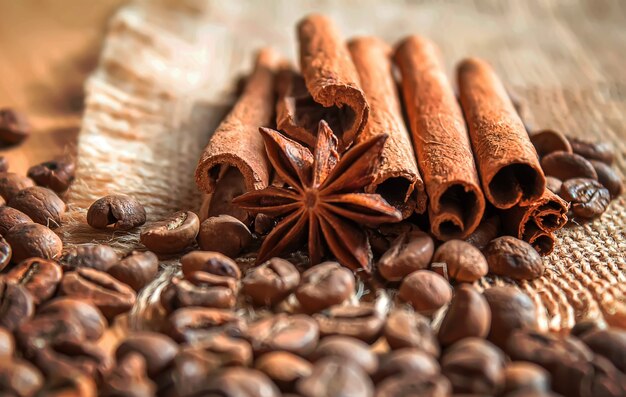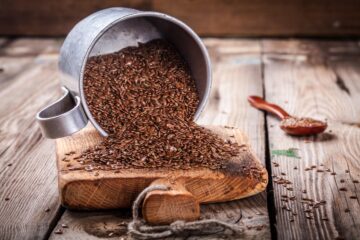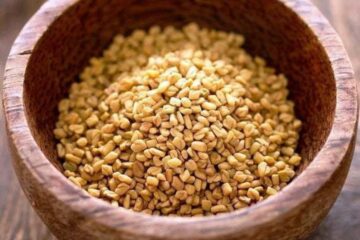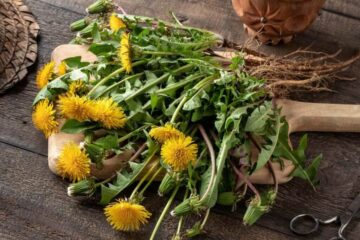Name:
Description:
Origin and Distribution:
Cultivation and Care:
Cinnamon trees prefer hot and humid climates with heavy rainfall. They thrive in loamy or sandy soils and require full sun exposure. The trees are propagated through seeds or cuttings, and pruning is necessary for commercial bark production.
Harvesting and Storage:
The bark of the tree is harvested during the rainy season when it is more pliable. The outer bark is scraped off, leaving the inner bark to dry and curl into the characteristic cinnamon sticks or “quills”. Cinnamon can be stored as sticks or ground into a powder for more extended storage and convenience.
Medicinal Uses of Bilberry:
- Blood Sugar Control: Cinnamon has been investigated for its potential use in managing blood sugar levels, especially in patients with type 2 diabetes. According to a systematic review and meta-analysis published in the “Journal of Medicinal Food,” supplementation with cinnamon may result in statistically significant decreases in levels of fasting plasma glucose. However, the authors emphasize that the results should be interpreted with caution, and further research is needed to confirm these effects and determine the optimal dosage and duration of treatment. Source: Journal of Medicinal Food, “Cinnamon Use in Type 2 Diabetes: An Updated Systematic Review and Meta-Analysis”: https://www.liebertpub.com/doi/abs/10.1089/jmf.2012.2531.
- Anti-Inflammatory Properties: Cinnamon has been studied for its potential anti-inflammatory effects. A review published in “Food & Function” discussed various bioactive compounds present in cinnamon, such as cinnamaldehyde and cinnamic acid, which have shown anti-inflammatory activity in experimental models. These findings could have implications for the use of cinnamon in managing inflammatory conditions, but human trials are needed to further investigate this potential. Source: Food & Function, “Anti-inflammatory activity of cinnamon (C. zeylanicum and C. cassia) extracts – identification of E-cinnamaldehyde and o-methoxy cinnamaldehyde as the most potent bioactive compounds”: https://pubs.rsc.org/en/content/articlelanding/2015/FO/C4FO00680A.
- Antioxidant Effects : Cinnamon is known for its antioxidant properties. A review published in “Nutrition Journal” mentioned that cinnamon ranked number one out of 26 popular herbs and spices in terms of antioxidant content. Antioxidants play a crucial role in protecting the body against damage from free radicals, which are harmful molecules that can lead to chronic diseases like cancer and heart disease. Source: Nutrition Journal, “Antioxidant capacity of 26 spice extracts and characterization of their phenolic constituents”: https://nutritionj.biomedcentral.com/articles/10.1186/1475-2891-4-21.
- Antimicrobial Effects: Cinnamon has demonstrated antimicrobial properties. In a study published in the “International Journal of Food Microbiology,” essential oil from Cinnamomum cassia showed high antimicrobial activity against different types of bacteria, yeast, and fungi, including E. coli and Staphylococcus aureus. This suggests potential applications of cinnamon in food preservation and therapeutic treatments. Source: International Journal of Food Microbiology, “Antimicrobial activity of cinnamon (Cinnamomum zeylanicum) essential oil and its main components against Paenibacillus larvae from Argentine”: https://www.sciencedirect.com/science/article/abs/pii/S0168160507004953.
- Cognitive Benefits: Research has also explored the potential cognitive benefits of cinnamon. In an animal study published in “Journal of Alzheimer’s Disease,” cinnamon and its metabolite sodium benzoate were found to improve cognitive behavior in mouse models. Sodium benzoate was observed to decrease the plaques associated with Alzheimer’s and increase brain plasticity. While these findings are promising, human trials are needed to confirm the potential cognitive benefits of cinnamon. Source: Journal of Alzheimer’s Disease, “Cinnamon Converts Poor Learning Mice to Good Learners: Implications for Memory Improvement”: https://content.iospress.com/articles/journal-of-alzheimers-disease/jad160153.
- Potential Benefits for Polycystic Ovary Syndrome (PCOS): Cinnamon has been studied for its potential benefits in women with Polycystic Ovary Syndrome (PCOS). In a study published in the “American Journal of Obstetrics and Gynecology,” cinnamon supplementation was associated with menstrual cycle improvements in women with PCOS, possibly related to insulin resistance reduction. However, further studies are required to confirm these preliminary findings. Source: American Journal of Obstetrics and Gynecology, “Effects of Cinnamon on Cycle Regularity in Polycystic Ovary Syndrome: A Pilot Study”: https://www.ajog.org/article/S0002-9378(13)00828-6/abstract.
Uses:
Culinary Uses: Cinnamon is widely used as a spice in various cuisines.
Medicinal Uses: Traditionally, cinnamon has been used in Chinese, Indian, and Persian medicine. It’s promoted as a dietary supplement for diabetes, gastrointestinal problems, and other conditions. However, scientific studies do not conclusively support its use for health conditions. Source: National Center for Complementary and Integrative Health.
Diabetes Management: Cinnamon has been a subject of interest in the management of diabetes mellitus. A meta-analysis of sixteen randomized controlled studies, published on PubMed, assessed the efficacy of cinnamon in treating type 2 diabetes mellitus (T2DM) and pre-diabetes. The results indicated that cinnamon significantly reduced fasting blood glucose (FBG) and homeostatic model assessment for insulin resistance (HOMA-IR) levels compared to placebo. However, there was no significant change in glycosylated hemoglobin A1C (HbA1c) percentages and lipid profiles. This study suggests that cinnamon could be beneficial in lowering FBG and improving insulin resistance in T2DM and pre-diabetes patients. However, the high heterogeneity among the included studies indicates the need for further clinical trials with standardized cinnamon formulations. Source: PubMed.
Gastrointestinal Health: While cinnamon is traditionally used for relief of gastrointestinal distress, there’s a lack of substantial evidence from clinical trials supporting this use. A review by the National Center for Complementary and Integrative Health found that studies do not clearly support using cinnamon for gastrointestinal problems or any other health condition. It also notes that there’s insufficient evidence to determine whether cinnamon is helpful for weight loss or for controlling blood levels of cholesterol and related lipids. Source: National Center for Complementary and Integrative Health.
Cardiovascular Health: Cinnamon has been traditionally used as a herbal medication, including for cardiovascular health benefits. However, a systematic review and meta-analysis of 23 studies involving 1070 subjects did not find an association between cinnamon consumption and improvements in cardiovascular risk factors such as low-density lipoprotein cholesterol, high-density lipoprotein cholesterol, and hemoglobin A1C levels. This comprehensive analysis underscores the necessity for more robust and long-term randomized controlled trials to ascertain any potential cardiovascular benefits of cinnamon. Source: PubMed.
Other Uses: Cinnamon is used in cosmetics for its pleasant aroma and potential skin benefits. It’s also used as a natural insect repellent and in potpourri for its long-lasting fragrance.
Safety Information:
Cinnamon supplements are generally safe in amounts used as a spice or flavoring agent. However, cassia cinnamon contains coumarin, which can be harmful to the liver in large amounts or prolonged use. The safety of cinnamon during pregnancy or breastfeeding is not well established. Source: National Center for Complementary and Integrative Health.
Historical and Cultural Significance:
Cinnamon has been used since ancient times, mentioned in the Bible and used by Egyptians for embalming. During the Middle Ages, it was a symbol of status in Europe and believed to have curative powers. By the 17th century, it was a significant part of the spice trade.
Conservation Status:
I was not able to find specific information on the conservation status of cinnamon within the time allotted.





